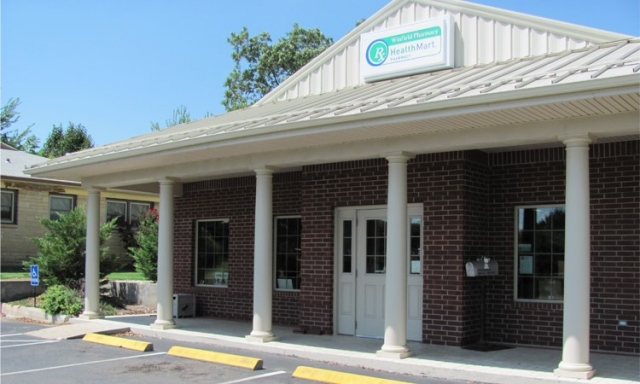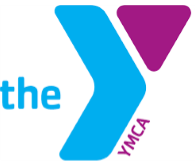
Winfield Pharmacy Health Mart was recently selected as one of only two communities to serve as a pilot for a YMCA Blood Pressure Self-Monitoring Program (BPSM). Grant-funded by the Kansas Department of Health & Environment (KDHE), this is a new partnership between KDHE and the YMCA.
Jill Daughhetee, a Winfield native and a Quality Improvement Advisor with the Kansas Healthcare Collaborative Practice Transformation Network, learned about the BPSM pilot program in 2017. She wanted to see this pilot implemented in her hometown. She understood this was a special opportunity make a difference for patients in her community.
When Daughhetee approached Winfield Pharmacy Health Mart last summer, the local business was immediately intrigued by the program and its potential to positively impact health outcomes in the community.
“Think of high blood pressure like a garden hose. They are built to handle a lot of water, but only at so many pounds of water pressure,” explained Zak Tazkargy, PharmD Winfield Pharmacy Health Mart. “Just like a garden hose, blood vessels are designed to handle a certain pressure. High blood pressure damages the inner lining of your vessels and can cause fat to collect on the vascular walls.”
He added, “This causes plaque build-up which can increase risk of a stroke or heart attack. The biggest artery in the body, the aorta, can be damaged over time by high blood pressure, which is extremely dangerous. Monitoring and working to lower blood pressure can improve general well-being and quality of life.”
Winfield Pharmacy Health Mart is now enrolling patients in their BPSM program and will start seeing patients March 19. The pilot will last for 3 months with plans to continue the program long term. Patients are given a blood pressure machine to take home and they are taught how and when to take their own blood pressure readings. The patients log their blood pressures and meet twice per month with the Healthy Heart Ambassador to review blood pressure logs.
The Healthy Heart Ambassador works with the patient to identify trends, behaviors and/or lifestyle factors that might impact blood pressure, and identify medication adherence issues. Healthy Heart Ambassadors then communicate with the patient’s primary care physician regarding the blood pressure logs and visits.
When patients and families are engaged in their healthcare and are a part of the decision-making process and self-management, patients are healthier.
“You can give a man a fish and feed him for a day or teach him to fish and feed him for a lifetime, said Daughhetee. “The same is true for teaching patients to self-monitor for high blood pressure. We want to empower patients to become highly motivated to track their daily blood pressure readings and to use that data to have meaningful conversations with their healthcare providers. Over time, patients begin to see the impact of lifestyle change on their blood pressure readings. It’s a win-win for both patients and providers,” said Daughhetee.
|
Evidence-Based |
Program Description
|
Program Goals
|
|
Program Eligibility Criteria
|
